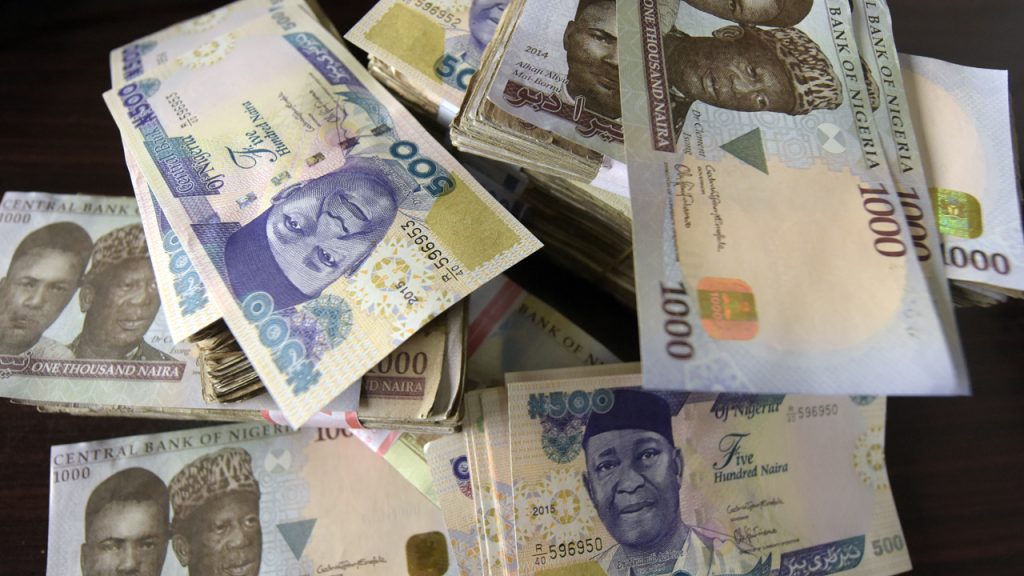The Nigerian Naira experienced a resurgence at the beginning of the week, appreciating against the US dollar in both official and parallel markets. This positive shift, which saw the Naira strengthen from a low of N1635/$ to around N1615/$ in the parallel market, is attributed to a confluence of internal and external factors. Improved investor confidence, bolstered by sustained interventions by the Central Bank of Nigeria (CBN) in the foreign exchange market, played a crucial role in stemming volatility and injecting much-needed liquidity. Externally, the temporary suspension of US tariffs on major trading partners eased global trade tensions, positively impacting market sentiment and contributing to the Naira’s appreciation. Furthermore, the recovery in crude oil prices, a vital source of foreign exchange for Nigeria, provided additional support.
Several internal factors also contributed to the Naira’s improved performance. Increased diaspora remittances, signifying a positive response to the CBN’s efforts to diversify foreign exchange sources, injected more dollars into the economy. The CBN’s enhanced transparency, particularly in communicating data such as the significant increase in its net foreign exchange position, fostered market clarity and reinforced confidence in the nation’s economic buffers. Furthermore, the sale of crude oil in Naira to local refineries eased the demand pressure on the dollar, which had been a major contributor to market volatility. This combination of increased supply and reduced demand for dollars created a more favorable environment for the Naira.
While the Naira’s rebound is a welcome development, experts caution against complacency. Sustaining this positive trajectory requires a multifaceted approach. Maintaining consistent crude oil production is paramount, as it remains a primary source of foreign exchange earnings. Attracting higher levels of foreign direct investment is also crucial for injecting capital into the economy and further boosting the Naira. The CBN’s recently released data on capital accounts highlights the need for continued efforts in this area. A recent positive rating action by Fitch offers some encouragement, potentially signaling increased investor confidence in the Nigerian economy.
Beyond these economic factors, fostering robust policy coordination between fiscal and monetary authorities is essential. Aligning policies and collaborating with relevant stakeholders will ensure a sustainable approach to managing the Naira’s value and the broader economy. The current administration’s focus on addressing inflation and economic and security challenges is viewed as positive, but continued implementation of sound policies and reforms will be crucial for sustaining the Naira’s recovery. Experts emphasize that a holistic approach, addressing both internal and external factors, is vital for long-term currency stability.
Analyzing the contributing factors further, industry experts offer valuable insights. The link between crude oil prices and the Naira’s exchange rate is undeniable. Rising oil prices directly impact traders’ perceptions and contribute to a stronger Naira. Additionally, the market’s initial overreaction to US tariffs appears to be correcting itself, with the realization that the direct impact on Nigeria, primarily an oil exporter, is likely to be muted. This correction in market sentiment has contributed to the Naira’s recent gains. The parallel market, being highly price-sensitive, is prone to such overreactions, highlighting the importance of cautious interpretation of short-term fluctuations.
The focus now shifts to maintaining the momentum of the Naira’s recovery. Sustained crude oil production at levels between 1.5 and 1.6 million barrels per day is crucial for keeping the Naira within a stable range. Stimulating foreign direct investment is also a key priority, requiring sustained efforts to improve the investment climate and attract foreign capital. The recent positive rating action by Fitch can contribute to this effort by boosting investor confidence. Ultimately, a combination of consistent oil production, increased capital inflows, and deeper policy coordination will determine the long-term stability of the Naira. Maintaining transparency in data communication and continuing to diversify foreign exchange sources will further strengthen the nation’s economic resilience.














